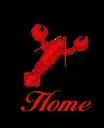Cajun
Creole, term first used in the 16th century in Latin America to distinguish the offspring of European settlers from Native Americans, blacks, and later immigrant groups. In colonial America the designation originally applied to the American-born descendants of European-born settlers. The term has since acquired varying meanings in different regions.
Cajun, name applied to the descendants of French-Canadians who now reside mainly in southern Louisiana. The name Cajun is the corrupt form of Acadian, a pastoral people who originally lived in Acadia (present-day New Brunswick, Nova Scotia, and Prince Edward Island) in Canada. It was a French colony until 1713, when it was acquired by Great Britain. In 1755, the British expelled those settlers who would not swear allegiance to the Crown. About 4000 Acadians eventually moved to the fertile bayou lands of Louisiana.
Today the Cajuns live in small, self-contained communities along the Gulf of Mexico. They raise cattle and cultivate various crops, including sweet potatoes, sugarcane, corn, and cotton. Home crafts are important, and the people do much of their own spinning and weaving.
The Cajuns have a mixed African, European and Native American ancestry, which helps set them apart from their neighbors. French-Canadian folk customs and traditions are preserved among this group, as well as a strong regional cuisine and a distinctive musical style. In addition to English, they speak their own distinctive dialect, a combination of archaic French and words taken from Spanish, English, German, black, and Native American peoples. Most Cajuns practice the Roman Catholic religion.
Creole
In the United States, in the state of Louisiana, Creoles are the white, French-speaking descendants of the early French or Spanish settlers. These people have their own culture and customs and even a composite language derived from the French. In Latin America the term may refer to persons of direct Spanish extraction or just to members of families whose ancestry goes back to the colonial period. In the West Indies the word Creole is used to identify descendants of any European settlers.
The term also is used to denote a language derived from a pidgin language, but having a more complex grammar and vocabulary because it has acquired native speakers through years of use. Examples include the French-based Haitian Creole and Neo-Melanesian, the creolized Melanesian Pidgin of New Guinea.

